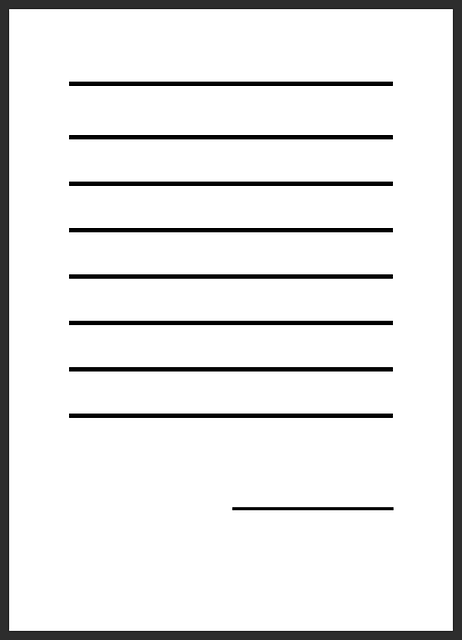In today's globalized business environment, accurate and compliant HR documentation is crucial. UK Human Resources Documents translation services are essential for navigating complex legal and cultural aspects of translating employment-related paperwork while adhering to diverse jurisdiction laws. These services employ native translators knowledgeable in labor law, minimizing risks of miscommunication and legal issues. In the UK, strict regulations like the Equality Act 2010 and Data Protection Act 2018 govern HR documents, emphasizing fairness and clarity. Professional translation agencies use advanced machine translation (MT) technologies, ensuring efficiency, quality, and consistent terminology. Case studies demonstrate successful translations by expert providers, enhancing communication with British employees while adhering to local regulations. Clear guidelines, regular feedback, and open communication are vital for high-quality translations. AI and NLP integration is poised to revolutionize HR document translation, offering more sophisticated solutions for modern multinational businesses.
In today’s globalized workplace, accurate translations of HR forms and compliance documents are paramount for UK businesses. Navigating legal requirements and ensuring document integrity can be a complex labyrinth. This article delves into the critical aspects of HR documentation translation services in the UK, exploring challenges, technological advancements, and best practices. From understanding nuanced regulations to choosing the right service provider, we provide insights for professionals seeking precise and compliant translations, ultimately fostering efficient global HR management.
- Understanding the Challenge: HR Forms and Compliance Documentation in a Globalized Workplace
- The Importance of Accuracy: Ensuring Legal Integrity in Translations
- UK Regulations: A Deep Dive into Legal Requirements for Document Translation
- Choosing the Right Translation Service Provider: Key Considerations for HR Professionals
- Advanced Technologies in Machine Translation: Boosting Efficiency and Quality
- Human Touch vs. Automation: Balancing Precision and Speed in Legal Documentation
- Case Studies: Successful Translations of Complex HR Forms and Compliance Documents
- Best Practices for Effective Communication with External Translation Agencies
- Future Trends: AI, NLP, and the Evolution of HR Document Translation Services
Understanding the Challenge: HR Forms and Compliance Documentation in a Globalized Workplace

In today’s globalized workplace, where businesses operate across borders, the demand for accurate and compliant HR forms and documentation has never been higher. UK Human Resources Documents translation services play a pivotal role in navigating this complex landscape. The challenge lies in ensuring that critical employment-related paperwork, from contracts to policy statements, is not only translated but also tailored to meet the specific legal requirements of each jurisdiction. This intricate task demands a deep understanding of both language and labor laws to avoid potential pitfalls and penalties.
When dealing with HR forms, precision is paramount. A simple translation mistake can lead to miscommunication, legal issues, or even discrimination claims. Professional translation services recognize this challenge and employ native-speaking translators who are also experts in employment law. They stay abreast of changing regulations, ensuring that every document reflects the latest compliance standards, thereby safeguarding businesses and their employees alike.
The Importance of Accuracy: Ensuring Legal Integrity in Translations

Accuracy is paramount when it comes to translating UK Human Resources documents, as any errors or ambiguities can have significant legal implications. The consequences of inaccurate translations can be severe, potentially leading to non-compliance with employment laws and regulations, which may result in hefty fines and reputational damage for companies.
Professional translation services for HR forms and compliance documents must therefore go beyond simple word-for-word rendering. They need to employ experienced linguists who not only possess a deep understanding of the source text but also have expertise in the legal and HR domains. This ensures that the translated documents maintain their intended meaning, while also adhering strictly to the regulations they are designed to convey.
UK Regulations: A Deep Dive into Legal Requirements for Document Translation

In the UK, the legal landscape for HR documents and their translations is stringent, reflecting the country’s commitment to fairness and clarity in employment practices. Regulations such as the Equality Act 2010 and the Data Protection Act 2018 not only govern how companies handle employee data but also dictate the standard of accuracy required in translated HR forms. This includes ensuring that terminology specific to UK employment law is rendered precisely in the target language, avoiding any potential misinterpretation that could lead to legal complications.
UK Human Resources Documents translation services must adhere to these regulations, employing translators who are not just linguistically adept but also well-versed in the nuances of UK employment practices and laws. Professional translation agencies invest heavily in quality assurance processes, including extensive reviews and back-translation checks, to guarantee that every document is not just grammatically correct but also legally sound. This commitment to excellence ensures that companies using such services can rest easy, knowing their HR documents are compliant and their employees are protected.
Choosing the Right Translation Service Provider: Key Considerations for HR Professionals

When selecting a translation service provider for HR forms and compliance documents, UK-based professionals should consider several key factors. Firstly, ensure the vendor possesses expertise in legal and technical translations, as these are critical for maintaining accuracy and regulatory compliance. Look for native English speakers with deep knowledge of both the source and target languages, as this guarantees a natural flow and grammatical correctness in the translated documents.
Secondly, verify their quality assurance processes and certifications, such as ISO 17100 or equivalent, which validate professional standards. Reputation and experience are also vital; consider providers with a proven track record in handling sensitive HR documentation to avoid potential errors or data breaches.
Advanced Technologies in Machine Translation: Boosting Efficiency and Quality

Advanced technologies in Machine Translation (MT) are transforming the way UK Human Resources (HR) documents are handled, offering unprecedented efficiency and quality improvements. These tools leverage neural networks and artificial intelligence to produce more accurate translations compared to traditional methods. By training on vast datasets, MT systems can now capture nuances and contextual details, ensuring that legal and HR forms remain faithful to their original intent across different languages.
This evolution has significant implications for HR document translation services in the UK. For instance, automated MT can speed up the process of translating employee contracts, policies, and benefits summaries, reducing turnaround times and operational costs. Moreover, these technologies enable consistent terminology usage, crucial for maintaining brand voice and ensuring compliance with regulatory terms. With ongoing advancements, HR professionals can expect even more sophisticated solutions, fostering seamless global communication within their organizations.
Human Touch vs. Automation: Balancing Precision and Speed in Legal Documentation

In the realm of UK Human Resources (HR) documents translation services, there’s a delicate balance to strike between precision and speed. While automation offers efficiency in document conversion, it may not always capture the nuances of legal terminology or cultural context. The human touch remains indispensable for ensuring accurate translations, especially in sensitive areas like employment contracts and policies.
Professional translators with expertise in UK HR regulations bring a depth of understanding that machines can’t replicate. They meticulously navigate complex language, cultural references, and legal jargon to deliver precise documents. This balancing act demands a combination of advanced technology and human expertise, ensuring swift processing without compromising the integrity of crucial UK HR forms and compliance documents.
Case Studies: Successful Translations of Complex HR Forms and Compliance Documents

In the realm of UK Human Resources (HR) documentation, precision is paramount. Case studies highlight successful translations of complex forms and compliance documents, showcasing the expertise of specialized services. For instance, a global HR consulting firm recently partnered with a leading translation service provider to accurately translate employee handbooks, contracts, and policy statements for their UK branch. The project involved not just words but also cultural nuances, ensuring the documents resonated with British employees while adhering to local regulations.
The collaboration resulted in a seamless transition, enhancing employee onboarding and retention. Similarly, a multinational corporation faced the challenge of harmonizing HR practices across Europe, including the UK. Through strategic translation services, they standardized benefits packages, performance evaluation forms, and leave policies, streamlining operations and fostering a unified workforce across borders. These examples underscore the significance of professional translation in navigating the intricate landscape of UK HR documents.
Best Practices for Effective Communication with External Translation Agencies

When leveraging external UK Human Resources Documents translation services, clear and consistent communication is key to achieving precise and compliant translations. Establish detailed guidelines upfront, outlining specific terms, industry jargon, and any unique terminology used within your HR forms. This ensures translators are well-prepared and aligned with your company’s vocabulary standards.
Regularly review and provide feedback on draft translations to maintain consistency across all documents. Foster open lines of communication, encouraging questions and clarifications from the translation agency. Prompt responses not only improve collaboration but also help address any potential ambiguities in the source material, resulting in higher-quality translated outputs tailored to your UK HR needs.
Future Trends: AI, NLP, and the Evolution of HR Document Translation Services

The future of HR document translation services in the UK is set to be transformed by Artificial Intelligence (AI) and Natural Language Processing (NLP). These cutting-edge technologies are revolutionizing the way we handle language barriers, making precise translations faster, more efficient, and increasingly accessible. AI-powered tools can analyse complex legal and HR terminology, ensuring accurate interpretations of sensitive documents.
NLP enhances machine translation by understanding context and semantic meaning, resulting in improved quality. This technology allows for dynamic adaptation to different industries and specialisms within HR, from employee handbooks to compliance forms. As these technologies continue to evolve, UK-based Human Resources Document Translation Services can offer even more sophisticated solutions, catering to the diverse needs of modern businesses operating across borders.
In a globalized workplace, precise translations of HR forms and compliance documents are non-negotiable. This article has explored the multifaceted challenge of navigating UK regulations while ensuring legal integrity through accurate translations. By understanding the importance of accuracy and leveraging advanced technologies like machine translation, HR professionals can access efficient and high-quality services. Choosing the right translation provider and implementing best practices for communication ensures successful outcomes in managing complex HR documents. Looking ahead, AI and NLP will continue to revolutionize HR document translation services, shaping a future where accurate, compliant translations are readily accessible across borders.
